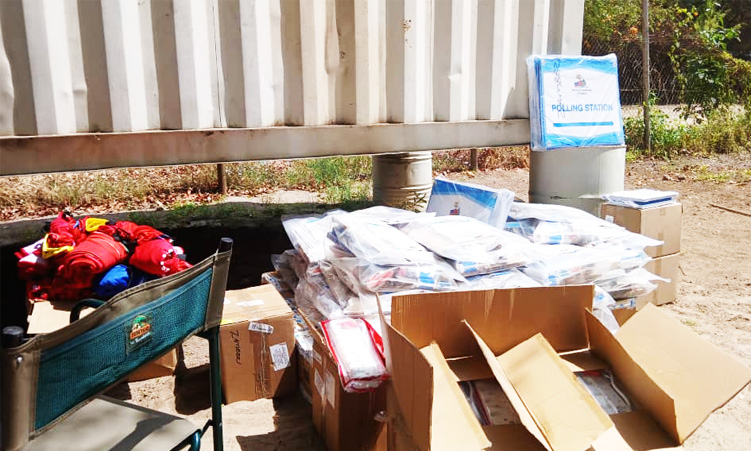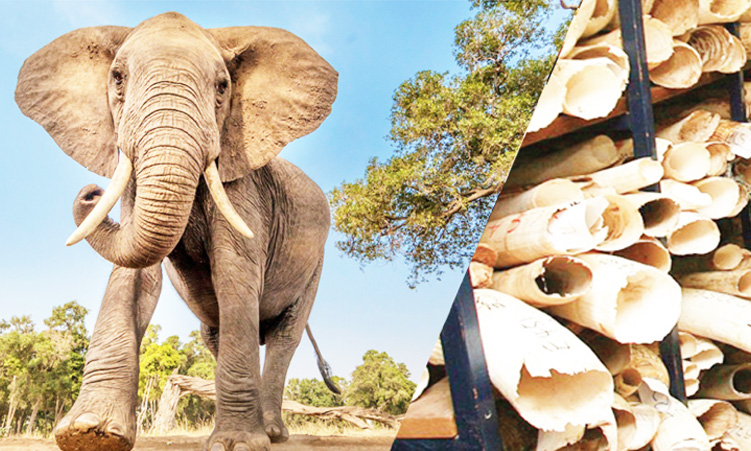As I sit to pen these thoughts, I reflect on the complexities of our national identity and the looming national elections, 34 years after Namibia gained independence.
Born into a family that supported the liberation struggle, my patriotism and commitment to Namibia’s future run deep.
But today, I question whether these values are misplaced.
What future does Namibia hold for my children, fourth-generation Namibians, in a country fraught with systemic challenges?
Since independence, Namibia has boasted immense natural wealth and opportunities.
Yet, it remains difficult to identify post-independence business success stories that contribute meaningfully to the nation.
Enterprises thriving without preferential treatment or government-backed initiatives are few and far between, especially those that have contributed meaningfully to communities and fostered sustainable growth.
PROFITEERING VERSUS COLLECTIVE BENEFITS
Why, in a resource-rich nation, do we struggle to foster broad-based success?
The answer seems rooted in systems designed by our government to benefit individuals rather than communities and wider society, creating a culture of short-term enrichment over sustainable growth.
The process surrounding government tenders, mining claims, fishing quotas, and recently even tourism concessions often prioritise personal gain over collective benefit.
Worse still, this trend is sometimes openly supported by politicians who disregard the long-term welfare of communities for short-term personal or political gains.
Recently, one suggested that two well-connected individuals’ mining ventures outweighed the rights and livelihoods of entire communities dependent on conservancy-driven tourism – a model that benefits thousands while preserving Namibia’s environmental heritage.
This systemic bias not only deepens inequality but also perpetuates historical injustices under the guise of progress.
This is not patriotism – it’s profiteering at the expense of Namibia’s most vulnerable.
A CASE FOR CONSERVATION AND SUSTAINABLE TOURISM
Ultimate Safaris, a company I co-founded, represents an alternative vision for Namibia’s economic and social development.
We are a Namibian brand dedicated to creating a positive impact.
From humble beginnings, we have grown into a business employing nearly 150 Namibians, many of whom have risen from entry-level roles to positions of significant responsibility.
We provide private medical aid, pension schemes, and opportunities for growth that far exceed the support provided by government structures in over three decades.
There is a global movement that encourage companies to give back 1% of their revenue, and I think you’ll be hard-pressed to find a single company in Namibia that achieves that.
Beyond our business operations, we have operated alongside the Conservation Travel Foundation, a nonprofit we began in 2006, channelling the equivalent of at least 2.5% of our revenue annually into community development and conservation.
This support, amounting to millions annually, directly impacts landscapes across Namibia, even in areas without commercial tourism.
This year alone the Foundation has invested almost N$8 million in conservation and rural development across Namibia.
In 2022, we took a bold step by making long-serving staff shareholders, reinforcing our commitment to shared success.
Several of our investments are rooted in communal land by choice, operating in partnership with conservancies that benefit entire communities.
These ventures are not without challenges, unlike ventures on private land, that don’t have a broad-based benefit.
Communal land development carries inherent risks: Lack of title deeds, reliance on evolving conservancy committees, and the need to secure community trust.
Despite these hurdles, our operations have generated substantial financial and social benefits for the regions we work in – far exceeding the meagre promises of low value mining interests.
A CASE OF CONTRADICTIONS
Our ventures on communal land epitomise high-risk, high-reward investments that prioritise community benefit.
Joint ventures with conservancies like Huab, Doro !Nawas, Twyfelfontein Uibasen and Sorris Sorris have created long-term value for local communities.
These ventures generate substantial cashflow for conservancies, employment opportunities, and community development projects.
For example, our efforts in these regions are projected to generate more than N$300 million in cash to three conservancies during our contracts’ tenure of 25 years, benefiting thousands.
This year alone, 2024, our operations which are set to be severely compromised by mining activities, have paid almost N$3 million in cash to conservancies, N$7.5 million in salaries and subsistence (for 40 staff members) and contributed another N$7 million to the value chain that supports camp operations, for a mere 15 low impact rooms.
Our Foundation investments in this area are almost N$2 million for 2024, with a total investment to date into the area now reaching almost N$70 million since we started operations here in 2020.
We were set to build another four-room establishment before being forced to engage in litigation, potentially adding further to the value we add to the area and its inhabitants.
This is not lip-service nor an empty promise, but a documented undertaking, with a proven track record and results.
Conservancies use this money to pay pensions, orphan grants, funeral grants, bring solar power and water to homesteads, assist with tertiary education as well as support for livestock vaccinations, to name only a few of the benefits to their communities, and this in addition to running a sound conservancy as a going concern.
HUAB: A CAUTIONARY TALE
Despite this success, mining activities threaten to unravel decades of conservation work, expecting the communities and our joint operations to move aside after everything that has been built up.
In areas home to critically endangered species like the near-endemic arid-adapted southwestern black rhino, mining is not a compatible activity.
The assertion that mining and conservation can coexist in fragile ecosystems is disingenuous.
Our operations depend on black rhinos, a species critically sensitive to noise and human disturbance.
Evidence shows mining activities – including heavy machinery and blasting – force rhinos to abandon their habitats, destroying the tourism models reliant on them.
The Huab Conservancy serves as a cautionary tale: Mining in the area led to the loss of tourism operations, community income, and conservation efforts – all without any meaningful benefit to the local population.
In the Doros Joint Management Area near Twyfelfontein – an area that received international conservation recognition by being awarded the coveted PURE Conservation Award in September this year and one of our camps voted one of the best hotels in the world by decorated explorer Richard Bangs – our operations generate millions annually for the community, creating long-term contracts, employment, and developmental support.
We therefore believe the Environmental Commissioner’s failure to assess the impact of mining on wildlife and tourism operations represents a gross oversight, yet mining proponents, armed with Environmental Clearance Certificates (ECCs) issued without proper assessment, threaten to upend this balance.
This mirrors the tragedy at Huab, where the conservancy was left with no jobs, no tourism, and no environmental safeguards.
SYSTEMIC FAILURES AND POLITICAL INFLUENCE
At the heart of these conflicts lies systemic failure.
The Environmental Commissioner’s office has repeatedly issued ECCs without adequately considering existing tourism Joint Ventures or the environmental and social impact of mining.
These decisions undermine conservancy management plans and black rhino custodianship agreements meant to protect endangered species like black rhinos.
Appeals to the Ministry of Environment, Forestry, and Tourism (MEFT) languish unanswered for years, eroding trust in the system.
What’s worse, these decisions appear steeped in political patronage.
Regional governors promote mining at community meetings, police ignore environmental damage reports, and the very officials responsible for oversight seem aligned with mining proponents.
Meanwhile, conservancies are left to shoulder the immense financial burden of litigation – more than N$2.5 million so far for this case – money that could have transformed communities instead.
The mining proponents’ approach – divide and conquer, bribe, racially polarise and politicise – underscores a larger systemic issue, dividing what were united communities by offering short-term incentives.
When law enforcement and public officials side with exploiters over the communities they are meant to serve, we must question the integrity of our governance.
What does it say when the very ministry responsible for the environment fails to protect it?
THE BROADER IMPLICATIONS
These issues are symptomatic of deeper systemic failures.
Political interference, disregard for conservation and conservancy agreements, and short-sighted profiteering undermine Namibia’s potential.
The rhetoric of development rings hollow when long-term sustainability is sacrificed for fleeting gain.
Namibia’s natural heritage, epitomised by its unique wildlife and landscapes, holds immense value – not just economically but culturally and environmentally.
The black rhinos, the arid-adapted elephants of the Kunene, and the communities safeguarding these treasures deserve more than being sidelined for low-value mining ventures.
This isn’t just a battle for a few conservancies – it’s a fight for the future of Namibia’s communal lands and the integrity of our environmental governance.
A CRY FOR NAMIBIA’S ENVIRONMENT AND CONSERVANCIES
As the nation flirts with a variety of high-risk ‘get rich quick’ schemes, one wonders if we have abandoned sustainable, long-term investments in favour of individual, ecologically damaging short-term gain.
Namibia’s future lies in its ability to balance resource extraction with the preservation of its natural and cultural heritage, ensuring broad-based community benefits.
The question we must ask ourselves is this: Will we continue to allow systems that perpetuate inequality, enrich the few, and strip away the legacy of conservation and tourism that Namibia has become known for – or should we demand better governance, accountability, and a vision for a truly inclusive future?
It is time to shine a light on what is happening, and break the silence. It’s time for change.
– Tristan Cowley is the co-founder and CEO of Ultimate Safaris, a Namibian tour operator, as well as the founder of the Conservation Travel Foundation, a non-profit organisation heavily vested in making a positive impact on rural communities and conservation.
Stay informed with The Namibian – your source for credible journalism. Get in-depth reporting and opinions for
only N$85 a month. Invest in journalism, invest in democracy –
Subscribe Now!






